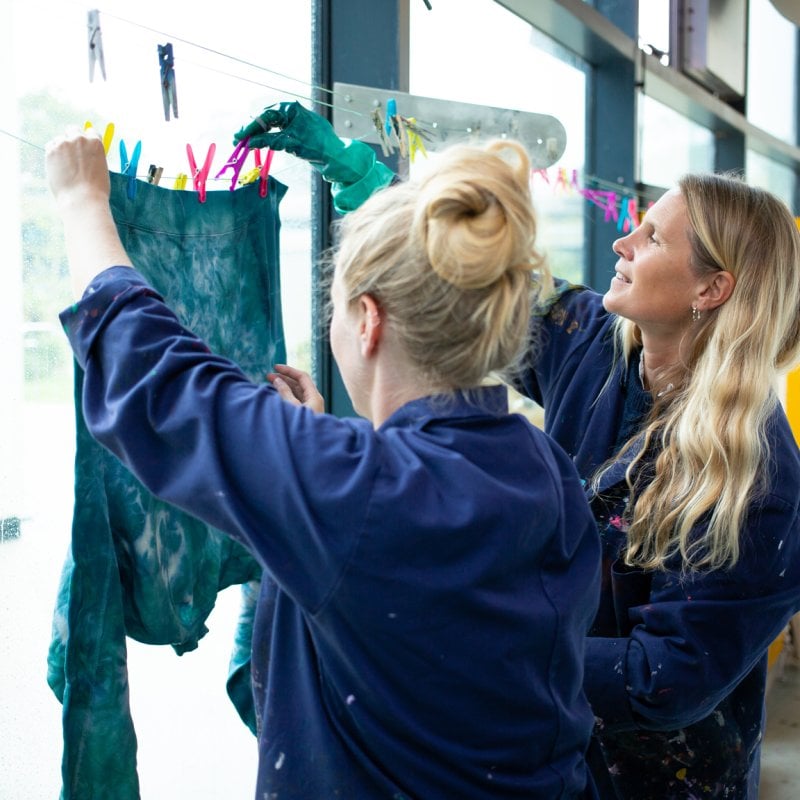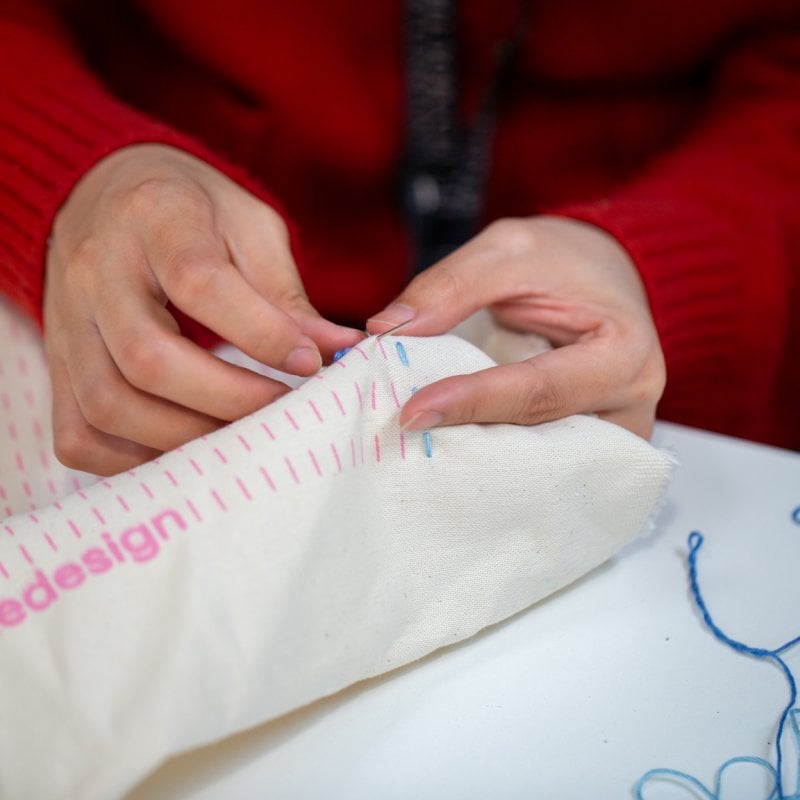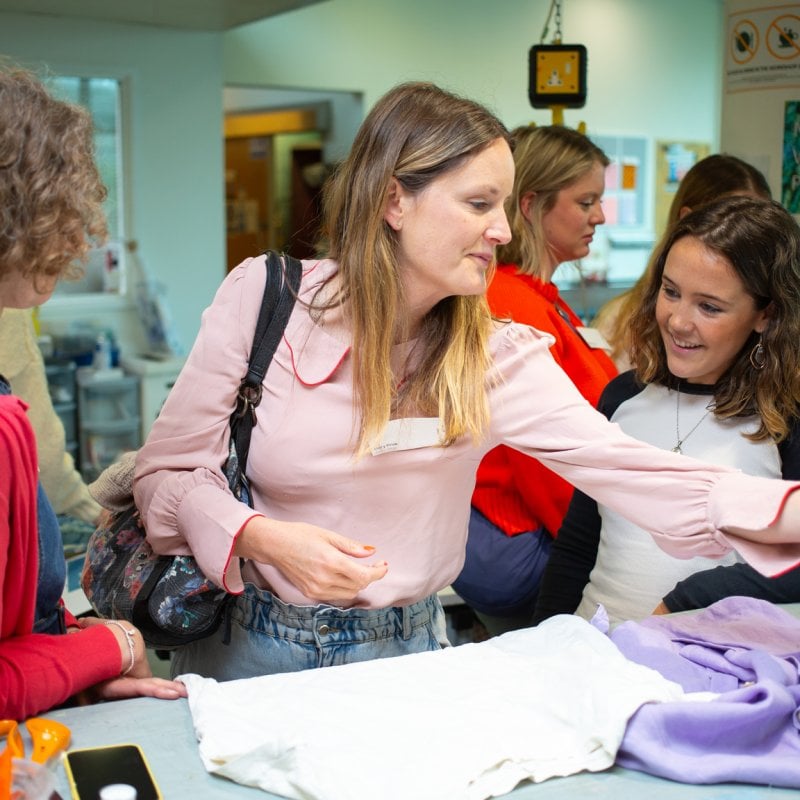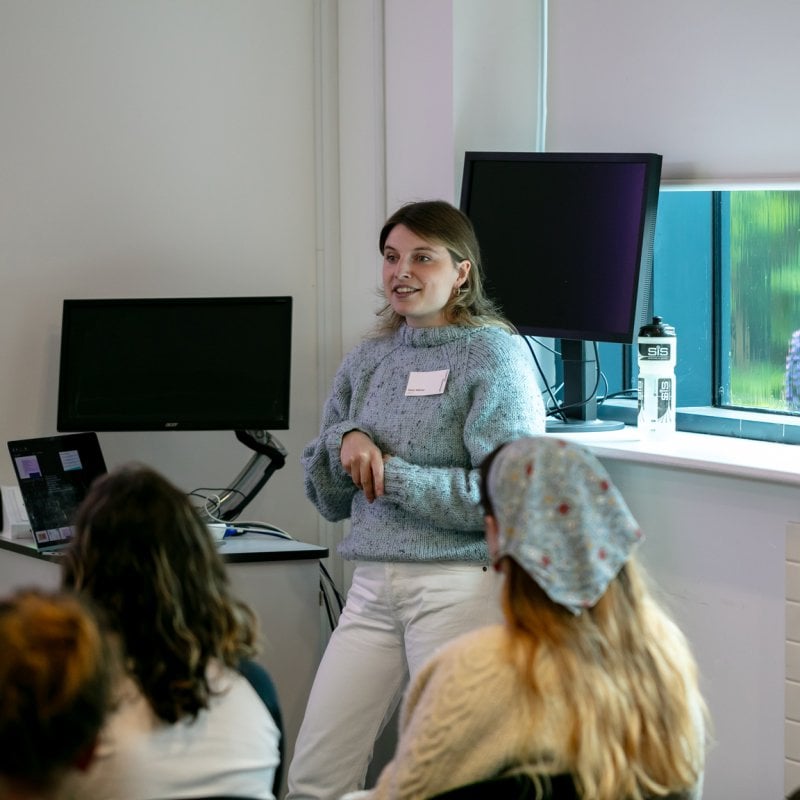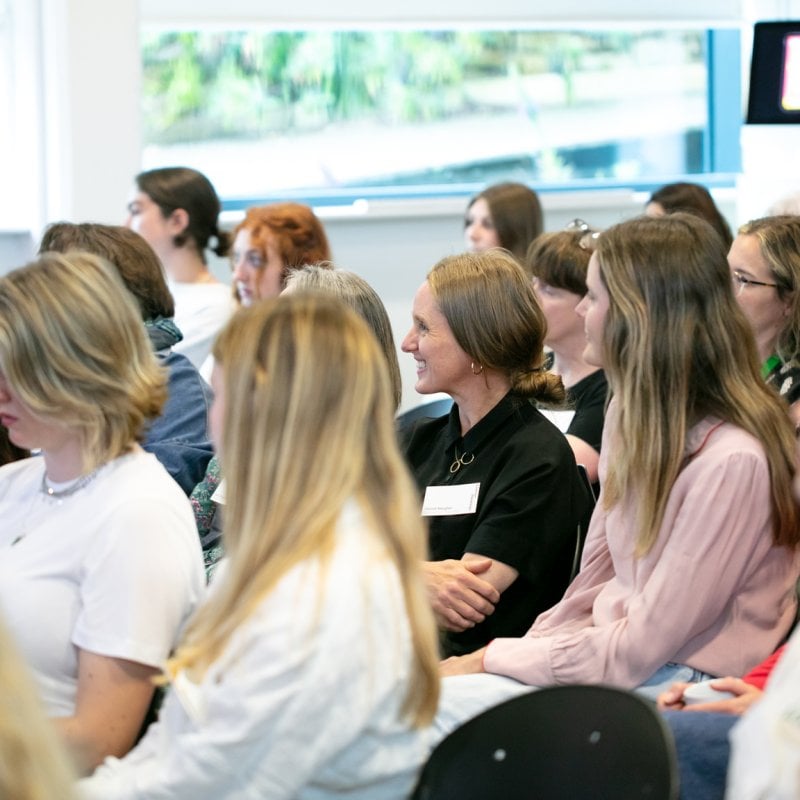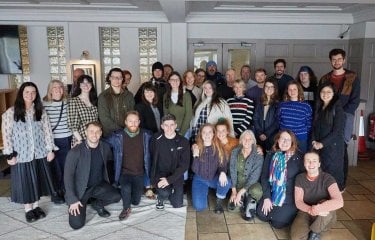Fashion & Textiles Institute host inaugural Fashion Redesign Forum
26 September 2024
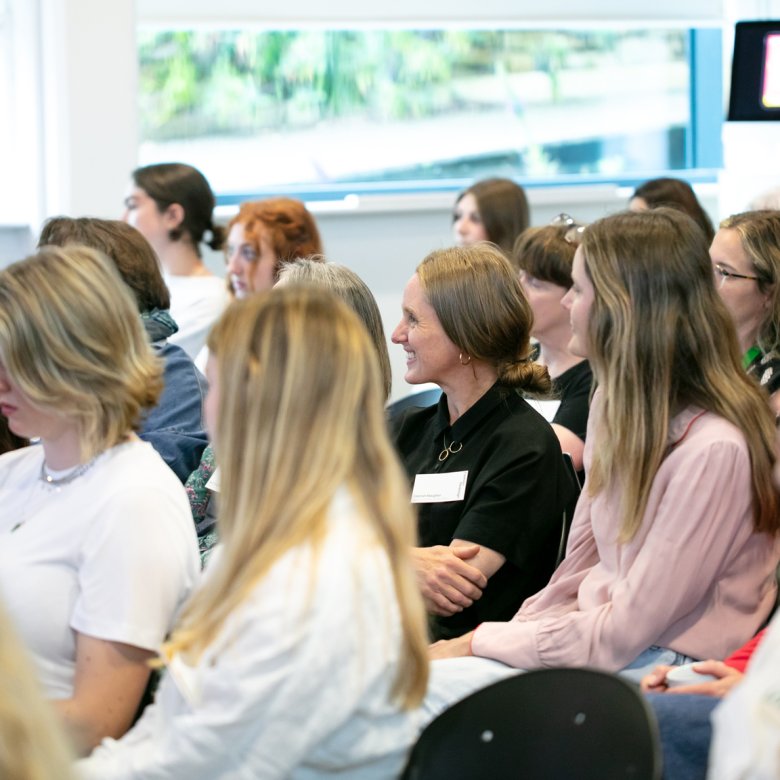
Credit: Matt Jessop
A team of senior lecturers, students and senior technicians from Falmouth’s Fashion & Textiles Institute recently hosted Fashion Redesign Forum #1 Repair, an event focused on discussing the future of fashion.
The first in a series of events of this kind, the day-long Fashion Redesign Forum explored how the lives of garments might be extended, and brought participants together to hear talks, have discussions, share skills and explore solutions. Hands-on workshops facilitated by repair specialists provided a forum for guests to have a conversation around the future of clothing repair, sustainable design practices and waste reduction strategies.
With introductions by Fashion Design Course Leader Claire Barker-Phillips and Senior Lecturer Geertje Dreijerink, the day was part of Falmouth’s Knowledge Exchange programme, and aimed to tackle specific areas including the role of schools in nurturing a culture of garment longevity and teaching core mending skills, and how businesses can help reshape consumer mindsets.
The day’s keynote speaker Alison Wibmer, from the Waste and Resources Action programme (WRAP), introduced the organisation’s latest reports informed by their Textiles 2030 initiative – the UK’s leading voluntary initiative supporting businesses and organisations within the fashion and textiles industry to transition to more sustainable and circular practices by the end of the decade.
The key takeaway was that while voluntary agreements are a good starting point, they fail to make businesses take responsibility for their carbon footprint. Currently, all the positive fashion industry initiatives to reduce carbon emissions and water usage are, unfortunately, outweighed by the vast quantity of new garments and textiles still being produced.
Guest speaker Amy Brock-Morgan, who leads clothing and lifestyle brand Finisterre’s Lived & Loved services, explained how businesses can successfully implement a repair service within a predominantly newly produced clothing company and the importance of humanising garment construction.
In smaller groups, speakers and attendees discussed the information shared and started mapping ideas and opportunities for implementation in local systems. The groups were also introduced to different garment repair skills, including a button sewing workshop made from local plastic waste developed by Matt Nott and led by Falmouth Senior Technician Michelle Hammond; a wool weaving workshop led by Threadpeg’s Laura ter Kuile using locally spun wool donated by the Natural Fibre Company in Launceston; and a Japanese sashiko stitching session – a centuries-old fabric strengthening technique – led by Falmouth Senior Technician Chikoko Jones.
During lunch, conversations continued, and guests were invited to work with Textile Design BA students and Senior Technician Alice Selwood to learn about indigo dyeing, shibori and screen-printing graphics on your own clothing, using examples designed by Falmouth students via a design brief.
In the afternoon, final year Fashion Marketing BA student Rebecca Symmonds presented her Final Major Project entitled ‘Unthread’ – an educational app and set of resources to support the teaching of fashion’s impact on the environment, developed in collaboration with Year 6 students at Trewirgie Junior School in Redruth.
Senior Textile Design lecturer Hannah Maughan also delivered a talk about the relationship between well-documented research into craft and well-being, and the opportunities for connecting mending communities using craft-based activities and skills in schools, hospitals and care homes. She shared examples of great initiatives and how these ideas could be implemented in Cornwall.
After another round of mending workshops and discussions – which featured acclaimed and now Cornwall-based fashion designer Teija Eilola working to upcycle a selection of archive items from her previous collections – the day ended with a panel conversation about key findings and steps forward.
Reflections on Falmouth’s first Fashion Redesign Forum were very positive, with participants highlighting the importance of working with likeminded people in bringing about positive change.
Sue Chapman, who attended the day on behalf of Helston Community College, was inspired to ensure that the college will teach all Key Stage 3 students basic sewing skills this year. Beth Owen, Textiles Tutor at IQA Truro Adult Learning, left the day similarly inspired and full of ideas to share with her students. Mara Vera Textiles founder Drashta Sarvaiya enjoyed the excellent opportunity to engage with local businesses and learn new skills.
